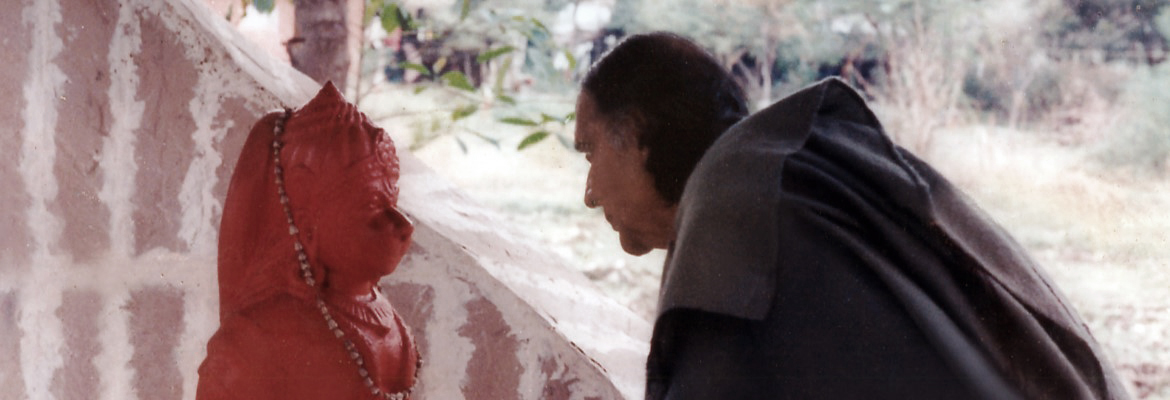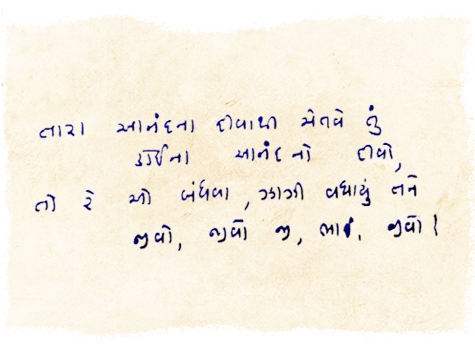MAKRANDBHAI DAVE


FROM NOBLE LINEAGE TO LITERARY LUMINARY
Born on the 13th of November, 1922, in the serene town of Gondal near Rajkot, Gujarat, Shree Makarandbhai Dave emerged from a lineage of noble and devout parents. A promising student of the Arts faculty, his academic journey was interrupted by a fervent call to participate in the 'Quit India Movement' of 1942, a testament to his deep-rooted patriotism. Despite this diversion, Makarandbhai carved a niche for himself in the annals of Gujarati literature through his profound and captivating poetry and prose, which continue to resonate with seekers of truth and beauty
The Multilingual Mastery and Literary Excellence: A Journey Through Awards and Accolades in Gujarati Literature
Throughout his illustrious life, Makarandbhai’s contributions to Gujarati literature were vast and varied. He was a master not only of his mother tongue but also of Sanskrit, English, Bengali, Sufi, Urdu, and the ancient literatures of Jain, Buddhist, Siddha, Saint, Nath, Tantrik, and folk traditions. His prolific output included an impressive array of forms: Pad, Geet, Ghazals, Bhajans, Doha, Sonnet, Muktak, Lokgeet, Lagna Geet, Baalgeet, novels, and dramas. His work earned him numerous accolades, including the prestigious Ranjeetram Gold Medal (1979), the Zaverchand Meghani Award (1996), and the Narsinh Mehta Award (2000). The Gujarat Sahitya Academy also recognized his contributions with the Saraswat Sanman and Murdhanya Sahityakar Sanman in 1997.
દરદ આવે, દુઃખ સતાવે,લાવે અગન જુવાળ
એને ધરપત કે થશે નંઈ, ક્યાંય વાંકો વાળ
એને કાળજે કિલકાર જેને હરિ તણો આધાર.
ભૂખને દઈ આશરો કરે, બીક શેની બેન ?
ઠીક છે ઠાકર કરે તે આપણે દિન-રેન
એને તો નહીં નહીં ભાર જેને હરિ તણો આધાર.
ગામમાં નહીં ખોરડું ને સીમમાં નહીં ખેત
તોય એનું સહુને કાજે હસતું રમતું હેત
એનો કર ભરે કિરતાર જેને હરિ તણો આધાર.
એનું કારભારું કલમવિણ ખુલ્લી ખાતાવહી
જાવ જઈ કહો જાદવાને કે કરી દિયે સહી
એની સબ પરે સરકાર જેને હરિ તણો આધાર.
અભ્યાસ અને ઉપાસના
Makarandbhai's literary voice was deeply attuned to the unseen realms, exploring themes of divine love, nature, and spirituality with a rare depth. His profound inner bliss was manifested in a distinctive humorous style that endeared him to readers and listeners alike. More than a mere writer, he was a sage of his era, elucidating the profound meanings of the Sanatan Shastras in an accessible manner. His legacy as a mystic and mentor endures, offering guidance on the spiritual path and insights into metaphysical realities. Though he has departed from the physical world, his teachings and writings continue to inspire and will remain relevant through the ages.